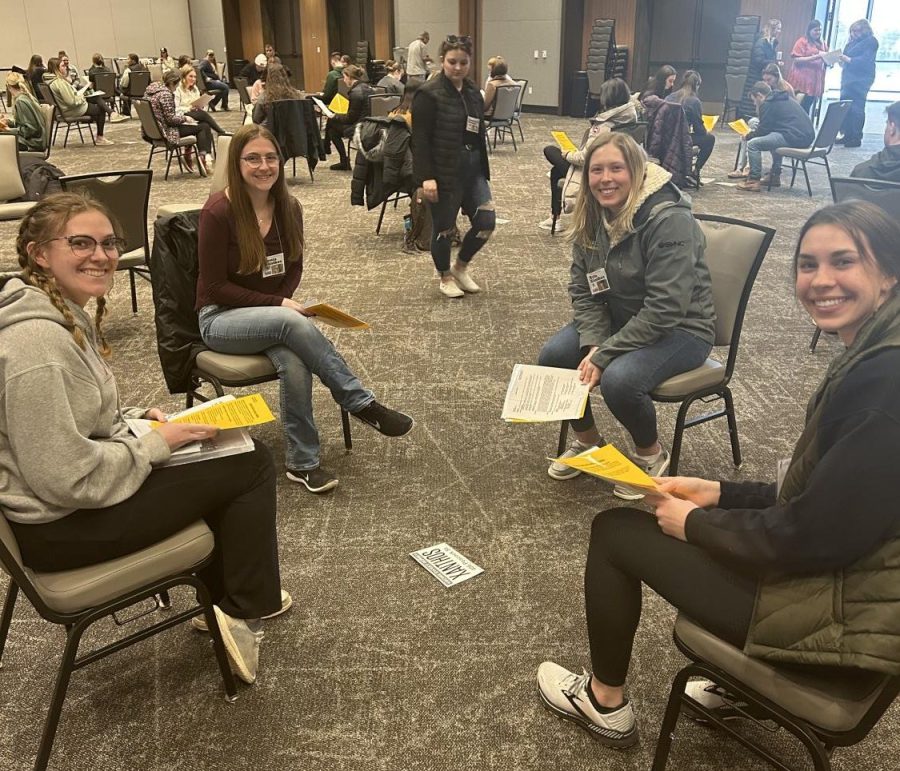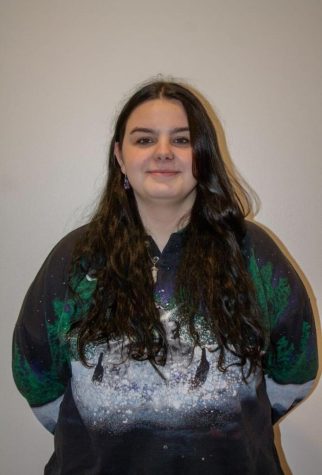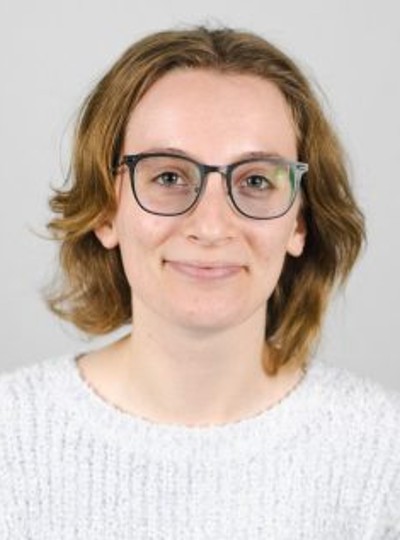Poverty simulation helps participants develop empathy
DEVELOPING EMPATHY – NMU students gather in a group for their assigned “family.” Each participant in the simulation is assigned a family to work with as they view what it’s like to experience poverty. The simulation lasts three hours, each hour acting as a month of living in poverty.
March 20, 2023
The NMU School of Nursing ran a poverty simulation on Wednesday, March 15 from 4 to 9 p.m. The simulation was held in the Northern Center in ballrooms II, III and IV.
Since 2017, the school of nursing has run the poverty simulation as part of a research project with the help of various other departments like the NMU College of Business and the School of Education. The simulation gets held about two to three times each semester in order to make sure students are able to attend. Students within programs such as nursing participate and volunteer at the simulation as part of their classes and their clinics.
The ballrooms in the Northern Center were set up with tables lining the perimeter of the room, leaving the middle open. The tables served as different agencies that participants needed to visit such as the grocery store, school, a healthcare agency, a pawn shop and social services. Each participant was handed a card with a description of their character and their role within their family, along with the situation that the family was facing. Participants then met in the middle of the room in a cluster of chairs that were reserved for their “family” and, with other participants acting as members of the family, received a folder detailing their situation.
Participants lived through three “months” of poverty, each 15 minutes acting as one week. In between each 15 minutes, participants received a break to regroup and talk to one another in order to create a plan for the next upcoming week.
The simulation acts as a means to see if the simulation can create a change in the empathy students have towards those living in poverty, co-coordinator of the simulation Kristen Smith said.
“Hopefully they see more of the stress that these individuals are under, so they have a little bit more empathy towards working with them,” Smith said.
The poverty simulation is done in multiple states throughout the country and originally started in Missouri. In order to hold the simulation, the department had to purchase a simulation kit from Missouri Community Action Network to become a kit licensee. The kit contains babies, badges, stuffed dolls, police hats and items to be pawned such as rings or necklaces.
Each time the simulation is held, the staff at the Northern Center set up the chairs and tables in the ballrooms and the departments participating in the event come in to set up the kit. The setup of the kit took roughly an hour, and the cleanup took roughly two hours, making it a three-hour process to organize the setup of the event.
The multidisciplinary aspect of the simulation helps to expand the number of students the simulation effects, nursing student Emma Carey said.
“It’s really cool that we have the multidisciplinary aspect of it, such as the business majors, the speech and language hearing and education as well,” Carey said. “As students, we get so fixated on daily tasks. We have assignments, we have due dates, we have tests, we have exams, that we almost forget to have that empathy component as well.”
There isn’t much funding for the simulation aside from the initial grants to purchase the kit in 2017. Due to this lack of funding, the department heads and organizers of the event spent the time setting up and taking down the simulation as well as a department head buying cookies for the students to have while they participated in the simulation. A different department head each semester is placed in charge of buying the cookies. Due to the lack of funding, students were encouraged to have a snack or meal beforehand.
The organizers of the simulation hope to get more funding and means of support in order to continue growing.




























